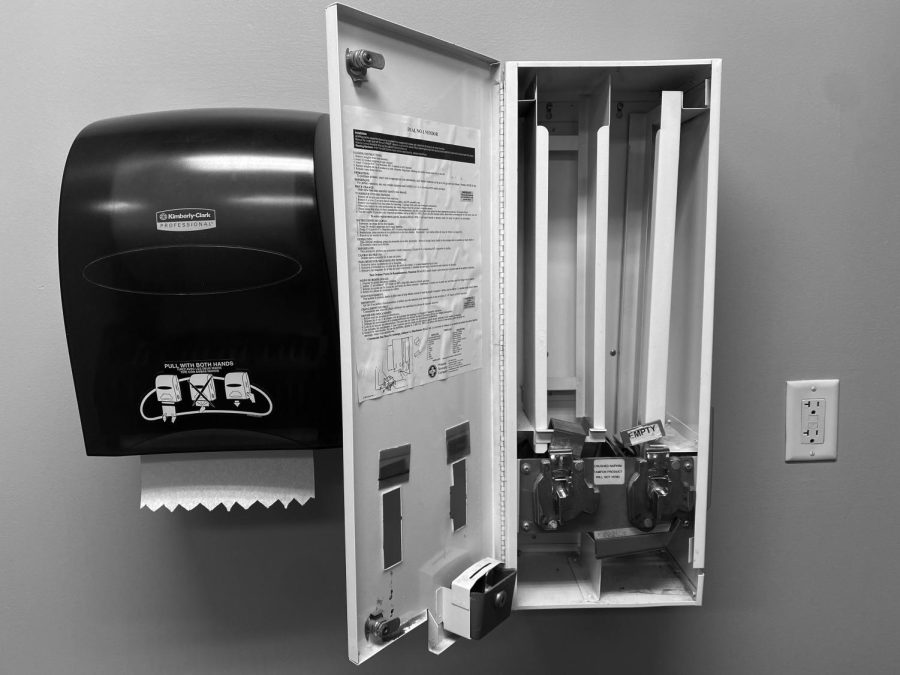Bleeding our pockets dry with female sanitary products
Photo courtesy of Charger Bulletin/Lindsay Giovannone.
An empty tampon dispenser inside of Bartels Hall, West Haven, Feb. 22, 2022.
Female sanitary products should be free.
This shouldn’t be a radical, polarizing statement, yet it is, largely due to the lack of understanding of the female reproductive system and a devaluing of the female body.
On average, women spend $18,171 on female hygiene in their lifetime, and they will bleed for a total of 10 years.
While this is a reality for most people with a uterus, and has been since women have existed, there still remains plenty of misunderstanding surrounding menstruation.
At a university where a majority of upper administration is male, it is not surprising that access to menstrual products remains abysmal on campus.
And so, women are left to shoulder the financial burden of this perfectly normal occurrence––sometimes without much support. In one recent trip around campus, five of the 26 women’s bathrooms in academic buildings at the University of New Haven, a metal box with a sticker asks for 25 cents for a pad or tampon. But all of these were empty, and the other 19 were simply nonexistent.
And, even assuming they’re not empty or broken, 25 cents isn’t fair. To put 25 cents into perspective, a 40 pack of Always UltraThin maxi pads from Target costs $5.79. The price of each pad would come out to roughly 14 cents. In a digitized vending machine in Kaplan Hall, you can get three Kotex tampons for $2.99. A pack of these at Walmart is priced at $9.27, meaning each individual product costs 20 cents.
There is only one bathroom that offers free pads and tampons in any academic building, and it is presumably made by a student: a small basket of things with a note that says “FREE” written next to it on a piece of paper. This is in the basement of Echlin Hall, and, while it is beautiful to see how students care about one another’s well being, it shouldn’t be up to us.
The University of New Haven has a total budget of about $289 million. Yet, all five 25-cent period product dispensers on campus are broken or empty. However, condoms are free and readily available at the health center. Students can ultimately choose to not have sex; but women cannot stop uterine lining and blood from falling out of their bodies.
It is time for the university to do their part––make feminine sanitary products more accessible and free on campus.

Lindsay Giovannone is a senior majoring in history and minoring in criminal justice. She has been part of the paper since she was a freshman and has previously...








